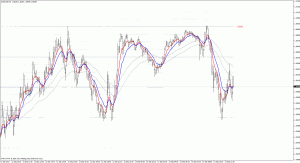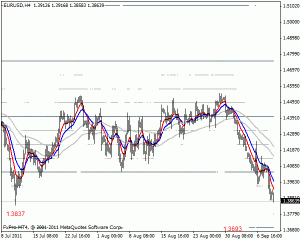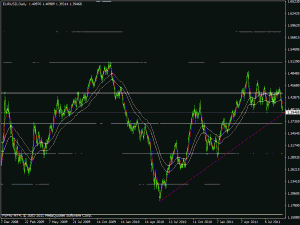imminent euro banking trainwreck
taken from a post on zerohedge here
The real story of the present is the shadow banking system, the unstable and massive repo market, and the apparent daisy chain of hyper-rehypothecated collateral. It looks like the sound bite version amounts to the fact that the European banking system is on the leading edge of collapse for the whole system. These institutions are by all evidence now badly deficient of the three hallmarks of real banks–deposits, capital and collateral.
BNP-Paribas is the classic example: $2.5 trillion of asset footings vs. $80 billion of tangible common equity (TCE) or 31X leverage; it has only $730 billion of deposits or just 29% of its asset footings compared to about 50% at big U.S. banks like JPM; is teetering on $500 billion of mostly unsecured long-term debt that will have to be rolled at higher and higher rates; and all the rest of its funding is from the wholesale money market , which is fast drying up, and from repo where it is obviously running out of collateral.
Looked at another way, the three big French banks have combined footings of about $6 trillion compared to France’s GDP of $2.2 trillion. So the Big Three french banks are 3X their dirigisme-ridden GDP. Good luck with that! No wonder Sarkozy is retreating on France’s AAA and was trying so hard to get Euro bonds. He already knows he is going to be the French Nixon, and be forced to nationalize the French banks in order to save his re-election.
By contrast, the top three U.S. banks which are no paragon of financial virtue–JPM, BAC, and C–have combined footings of $6 trillion or 40% of GDP. The French equivalent of that number would be $45 trillion. Can you say train wreck!
It is only a matter of time before these French and other European banks, which are stuffed with sovereign debt backed by no capital due to the zero risk weighting of the Basel lunacy, topple into the abyss of the shadow banking system where they have funded their elephantine balance sheets. And that includes Germany, too. The German banks are as bad or worse than the French. Did you know that Deutsche Bank is levered 60:1 on a TCE/assets basis, and that its Basel “risk-weighted” assets are only $450 billion, but actual balance sheet assets are $3 trillion? In other words, due to the Basel standards, which count sovereign and other AAA assets as risk free, DB has $2.5 trillion of assets with zero capital backing!
This is all a product of the deformation of central banking and monetary policy over the last four decades and the destruction of honest capital markets by the monetary central planners who run the printing presses. Furthermore, this has fostered monumental fiscal profligacy among politicians who have been told for years now that the carry cost of public debt is negligible and that there would always be a central bank bid for government paper. Perhaps we are now hearing the sound of some chickens coming home to roost.



